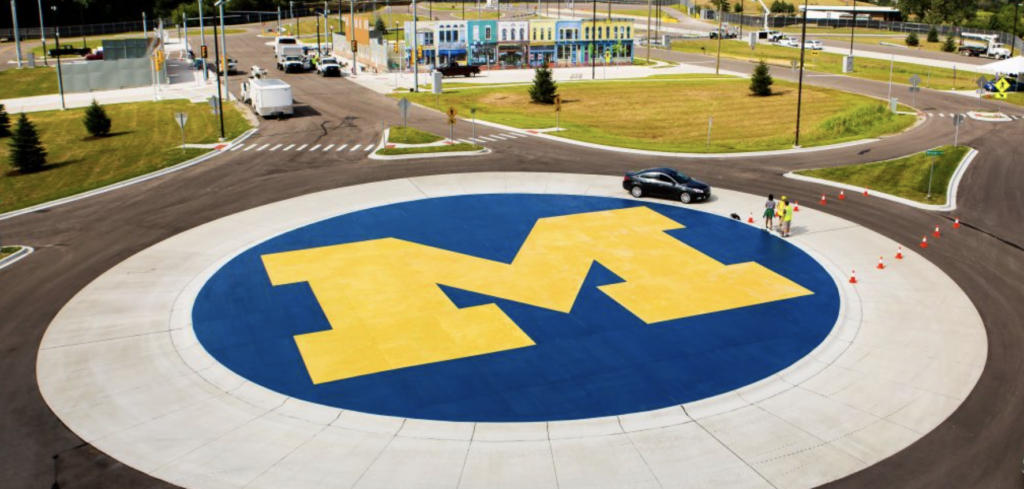A team of engineers at the University of Michigan’s Mcity has developed a platform, Mcity OS, that is said to streamline and augment the CAV test process in a number of ways. The cloud-based technology, which is designed to be flexible, consists of hardware and software that can be installed and used at other test sites and in real-world environments.
The overarching purpose of the solution is to simplify the creation, setup and execution of complicated scenarios. This will ultimately save time and outlay for developers and improve test repeatability. In addition, Mcity OS will indirectly help bridge the gap between software and hardware simulation and real-world analysis by providing a simple, consistent interface for testing, and through enhanced data collection for virtual control and integration with augmented reality in which the real and simulated environments are blended.
All of Mcity’s features can be controlled using the tech, which can be run on any internet-enabled device, including vehicle computer platforms, laptops, tablets and smartphones. It gives users point-and-click control over vehicle interactions at intersections, train crossings, crosswalks and other features of the test facility. Using a simple visible programming language, it is possible to drag and drop instructions to control all testing features and create multi-step test scenarios inside the environment.
Software for Mcity OS was developed by Tyler Worman, software engineering manager at Mcity, and Greg McGuire, associate director of Mcity. The supporting hardware was built by Ed Serzo, a software engineer at Mcity. McGuire commented, “Vehicles of the future are going to be magnitudes more capable and complex in their behaviors than vehicles today. Test facilities have to come along with them in terms of their capabilities. You can’t have a dumb test facility testing a smart car.”
The American Center for Mobility in Ypsilanti, Michigan, has become the first facility to license the tech through the University of Michigan’s Office of Technology Transfer. Mcity OS also provides researchers with access to connected car and intersection data in Ann Arbor, Michigan.
A new white paper outlining how the tech works and its benefits can be read online here.


